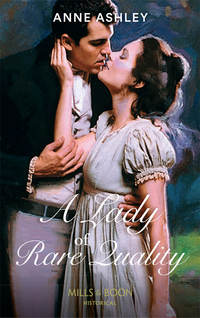
Полная версия
Lady Gwendolen Investigates
‘I should prefer you address me as Mrs Warrender,’ Gwen said, never having grown accustomed to the courtesy title bestowed upon her, simply because her late husband had received a knighthood in recognition of his unblemished record and acts of heroism whilst serving in His Majesty’s Army during the previous century. ‘And your name is?’
‘Annie, ma’am…Annie Small.’
Gwen was unable to suppress a slight smile as the name was somewhat incongruous. The rosy-cheeked Annie was definitely on the buxom side. ‘A doctor must be summoned at once,’ she ordered, her mind swiftly returning to the matter in hand. ‘I understand from Sir Percival’s man of business in London that a male servant is also employed here?’
Annie rolled her eyes, a clear indication that she didn’t wholly approve of the male employee. ‘Yes, ma’am, Manders. He be outside somewhere. Don’t come into the ’ouse much, on account of ’im being a lazy good-for-nothing and not seeing eye to eye with Mrs Travis, as you might say. Made ’imself a snug little place above the stable, so ’ee ’as. You can usually find ’im skulking up there.’
Although she was aware that prejudice often clouded judgement, Gwen strongly suspected that much of what Annie had related had not been too far removed from the truth.
From what she had seen thus far, the garden, although adequate in size, was by no means totally unmanageable for an employee willing to pull his weight. Anyone working outside, even in the remotest corner, would have little difficulty hearing the sounds of an arrival. Yet no one had appeared when the carriage had pulled up at the door in order to assist the post-boys and Gillie in bringing the baggage into the hall.
‘In that case, Annie, it shouldn’t be too difficult a task for you to locate his whereabouts, and dispatch him for the local doctor. But first I’d like you to take me to see Mrs Travis.’
The cook-housekeeper occupied a small apartment, consisting of two rooms, directly off the kitchen. Gwen’s first and very favourable impression was one of combined cleanliness and order. This was quickly overshadowed by a rush of concern, as she set foot inside the bedchamber, to find a thin, angular woman doing her level best to rise from the bed.
Mrs Travis’s assurances that she was now feeling a good deal better after her day’s inactivity, and was more than capable of creating a wholesome evening meal for her new mistress fell on deaf ears, as both Gwen and the loyal Martha headed across the room with purposeful strides. Severely weakened by the infection, Mrs Travis was no match for one, let alone them both, and returned to the warm comfort of her bed without attempting an undignified struggle, though clearly betraying signs of distress at being denied at least an attempt to fulfil her duties.
‘No one, I’m certain, supposes you contracted the malady on purpose,’ Gwen declared, after listening to the tearful apology. ‘Martha, here, is more than capable of catering for my needs, until such time as you are able to resume your duties. Which I sincerely trust will not be long delayed.’
At this assurance that her position as housekeeper was in no way in jeopardy, Mrs Travis began to appear a good deal easier, with the lines of concern that had been steadily increasing beginning to fade from above the lacklustre eyes. The further assurance that she was considered worthy enough to receive a visit from the local practitioner seemed to deprive her of the power of speech, and it wasn’t until Gwen alluded to the maidservant, Annie, that she was able to regain command of her voice.
‘But Annie hasn’t a permanent position here, madam,’ she revealed. ‘When the master’s man of business, Mr Claypole, wrote and told me a few weeks ago of your arrival back in England, he said as how I might employ extra staff in order to prepare the house for your arrival. He knew well enough there was only me and Manders here, on account of his visiting once a year to check for himself how things stood in the poor old master’s absence. He took his duties seriously. Never once forgot to pay our wages come quarter-day, and insisted I write to him, no matter how trivial the matter, if I was concerned about anything.’
As she too had been favourably impressed by Mr Claypole’s conscientious attitude, Gwen experienced no qualms whatsoever over retaining his services when she had called to see him shortly after her arrival in the capital at the beginning of the year. Her concerns now, however, were not about her business affairs, which she felt sure were in trustworthy hands. Her late husband had not left her a pauper. In fact, the opposite was true. He had ensured that she could live in comfort, and although she had no intention of wasting money on frivolous luxuries, she fully intended to concentrate her efforts on turning her late husband’s house into a home in which she might happily dwell.
Consequently, early in the evening, after the doctor’s prompt visit, and a swift exploration of each and every room in her new home, Gwen made a start on her objective. Taking herself up to the best bedchamber, which boasted a commanding view of the sadly neglected front garden, she began to unpack her belongings, some of which had been acquired during her recent sojourn in London.
In the process of hanging yet another new gown in the wardrobe, Gwen paused for a moment to cast a thoughtful glance across at the young maidservant who was proving to be both an obliging and cheerful soul, only too happy to remain later than usual in order to lend a helping hand.
‘I understand, Annie, that you’re not a permanent member of the household here?’
‘No, ma’am. Mrs Travis ’eard I were back at the cottage, taking care of me ma and the young ’uns, and so sent a message over asking if, mayhap, I’d like work for a week or two. Weren’t going to turn it down, not with ’ow things are at present. But I’ll need to find m’ self something more settled again afore too long, now Ma’s on the mend.’
After unravelling the salient points of this response, and asking a few more pertinent questions, Gwen discovered that Annie was currently seeking new employment owing to the fact that her last mistress had chosen to leave the area and reside permanently in Bath. Although having become extremely attached to the elderly lady for whom she had worked from an early age, Annie retained strong family ties, and had chosen not to accompany her mistress, but to return temporarily to the family home in order to care for her younger siblings, while her mother recovered from a severe bout of influenza.
‘Mortal bad she’s been, ma’am. Surprised she weren’t took, after the ’ard life she’s ’ad,’ Annie went on to reveal so matter-of-factly that Gwen was hard pressed not to laugh.
It wasn’t that she didn’t feel a deal of sympathy. It was merely that, having been the daughter of a clergyman, she had frequently come into contact with those much less fortunate than herself, and knew from experience that Mrs Small’s circumstances were sadly the norm for those less privileged members of the human race. Worn out by years of childbearing, hard work and a meagre diet, Annie’s mother was yet another victim of her class, growing old before her time. The wonder of it was that the poor woman had managed to reach middle age, something which her spouse, seemingly, had failed to achieve, having lost his life in an accident involving an unruly piece of horseflesh belonging to his employer, the Earl of Cranborne.
‘And was it because his employer felt in some way responsible for your father’s demise that he permitted your mother to remain in one of the estate cottages?’
‘Don’t expect so, ma’am. Much more likely it’s on account of our Jem working up at the stables as well. Our Betsy’s employed by his lordship too. She’s a chambermaid up at the Hall. But she stays up at the big ’ouse now. Just as well, ’cause it’s been mortal crowded in the cottage—what with Ma and the three young ’uns, not to mention Jem ’imself.’ Annie raised one plump shoulder. ‘I’ve got used to better, I suppose—a room to m’self. So the sooner I finds another situation, the better.’
‘And couldn’t you find work at Cranborne Hall? It would offer you the opportunity to remain close to your family.’
‘Not ’eard there’s anything going there.’ Annie shrugged again. ’Wouldn’t make no neverminds even if there were. I don’t want to work up there.’
Gwen was intrigued to discover this. ‘Why is that? Is the Earl not well liked in these parts, Annie?’
‘Oh, it ain’t that, ma’am. I don’t want to stay a parlourmaid all me life. Wants to better m’self, become housekeeper or some such. Not much chance of that ’appening if I went to the Hall.’
‘And are there no other large households hereabouts, or well-to-do families that might offer employment?’ Gwen wasn’t in the least reticent to make use of this golden opportunity to discover more about her friend Jane’s employer who, she was very well aware, was rumoured to be one of the wealthiest landowners in Somerset. Although she had never heard a word to his discredit, her late husband having enjoyed more than just a casual acquaintance with the gentleman in question, and his father before him, she thought it would be no bad thing to, perhaps, attain an unbiased view from another source before she paid a visit herself.
‘I recall my husband mentioning a Mr Northbridge, a close neighbour of his, I believe.’ She chose not to reveal at this juncture that she had a very dear friend employed as governess in the household. It wasn’t that she was ashamed of Jane’s status. Nothing could have been further from the truth. No, it was merely that she thought she would receive a more candid opinion of the aforementioned gentleman if she kept certain facts to herself.
‘Lord bless you, ma’am! I’d never get a job there!’ Annie exclaimed, much to Gwen’s intense surprise.
She then began to experience slight feelings of unease. ‘Why is that, Annie? Is he not—perhaps—a well-liked person?’
‘Oh, no, ma’am, it ain’t that. It’s t’ other way, if anything. I’m not saying he’s liked by everyone, but he is by most. And that’s a fact! He can be sharp, mind,’ she went on to divulge, after a moment’s thought. ‘Ain’t afraid to say what he thinks, Mr Northbridge ain’t. But ’ee’s fair. My big brother, Ben, him that toils down at the smithy in the village ’ere, would work for ’im tomorrow, iffen there were a situation going. Trouble is, nobody ever leaves Mr Northbridge. Not unless they’re taken away from the place in a box, that is!’
Gwen stared across at the parlourmaid for a moment in stunned disbelief. ‘What in the world do you mean by that, Annie?’
‘Well, ’tis this way, ma’am. Like anyone else, Mr Northbridge’s got ’is faults. All the same, there’s no denying folk lucky enough to get taken on at Bridge House stay there, and only leave when the Almighty decides it’s time for ’em to move on. Mr Northbridge knows fine our Ben would be ’appy to run the stables for ’im, and he’s promised Ben he’ll be given a job soon as there be one. But m’brother’s not daft, ma’am. He knows ’ee might be working at the smithy a good while yet.’
Gwen listened to these disclosures with decidedly mixed feelings. On the one hand, it was comforting to know that her dearest Jane had found herself a position where the head of the family was held in such esteem; on the other hand, though, it might prove no easy task to achieve her objective—namely to prise her dearest friend, the female whom she had always looked upon as a sister, away from this pillar of the community and persuade her to come and live with her now.
There was no denying that Jane had grown into a fiercely independent young woman. The only child of well-respected, if not affluent, parents, she had been both proud and determined to make her own way in the world. Gwen was equally aware that there would have been a greater chance of attaining her dearest wish if this unknown Mr Northbridge had proved not to be such a paragon. Undoubtedly she would discover precisely what manner of man he was for herself in due course.
In the meantime, though, there were other matters requiring her attention, she decided, quickly returning to the unpacking of the various trunks cluttering the bedchamber. Her first visit to Bridge House would need to be postponed for a while, at least until her own home had been restored to full working order.
In point of fact, it was over a week later before Gwen began to think seriously about making that short two-mile journey to Bridge House to see Jane Robbins. She had had much to occupy her since her arrival, not least of which had been engaging the services of Annie on a permanent basis, and hiring one of Annie’s young brothers, Joe, to help bring some much-needed order to the neglected garden.
Although the steadily recovering Mrs Travis had been very well pleased by Annie’s appointment, declaring that she was an excellent maid, one who could be relied upon to work without supervision, and not cut corners, Manders had betrayed no similar delight when informed that there would shortly be an extra pair of hands not only to help about the garden, but also to assist with all the other outside tasks.
His decided lack of enthusiasm hadn’t altogether surprised Gwen, for as the days had passed she had become increasingly convinced that Annie’s low opinion of Manders was fully justified. The resentment she had easily perceived in his expression, when she had informed him of the changes she intended to make, she strongly suspected, didn’t stem from the fact that he believed she thought him no longer capable of doing his work. Oh, no, it was much more likely to have been because, having someone else working alongside him every single day, he would no longer be able to idle so much time away in some out-of-the-way corner, feet up, pulling on his pipe. Already there had been noticeable improvements in several areas of the garden, and it was no longer a rare sight to see Manders himself pushing a wheelbarrow along one of the overgrown paths.
Her housemaid’s sudden appearance in the cosy back parlour, which Gwen had quickly selected for her private domain, drew her attention away from the activity taking place in the garden. For a short while she absently watched as Annie made up the fire, before enquiring into how her two newest employees were settling in.
If Annie felt surprised by this show of interest in her welfare, and that of her much younger brother, she certainly betrayed no sign of it. ‘Champion, ma’am,’ she declared, rosy face beaming. ‘My room in the attic’s nice and cosy. And I knew right enough I’d be happy working under Mrs Travis.’
‘And what about your brother? How’s he settling in?’
‘Well enough, Mrs Warrender. He’s finding no trouble with the work, young though he is. But ’aving a room all to ’imself is summat strange for ’im. Used to sharing with Ma and the little ’uns, you see?’
It said much about the conditions endured by the majority of those less fortunate members of the human race that sleeping alone in a room measuring little more than six feet by eight was considered the height of luxury.
‘Yes, I’m sure Joe must find it odd. But I’d rather he stay where he is for the present, where you can continue to keep an eye on him.’ Gwen turned once again to stare out at where the thirteen-year-old Joe was hard at work doing battle with a bramble patch. ‘The day might dawn when he’d prefer to share those quarters above the outhouses, and I shan’t object if he chooses so to do. As I saw for myself, only the other day, there’s ample room up there for three people. But for the time being I think it best he remains close enough for you to keep an eye on him. He’s still a child, after all.’
Gwen knew she didn’t need to say anything further. Annie was no fool, and although the maid herself was more than capable of holding her own against a taciturn individual like Manders, it didn’t automatically follow that her sibling might quickly learn to do the same. So, for the time being at least, it was worth keeping a watchful eye on proceedings, if only to be certain that young Joe wasn’t being put upon by his co-worker.
Gwen’s thoughts then turned to other events that had occupied her during her first week in her new home. She certainly hadn’t found time hanging heavily on her hands, even though she hadn’t received a single visit from a neighbour. In view of the fact that both Annie and the local practitioner, Dr Bartlet, had mentioned that what had seemed half the county, at some time or other, had fallen victim to the particular malady that had struck down poor Mrs Travis, the lack of callers in no way surprised her. All the same, she did think it rather strange that she had received no word from Jane, not even the briefest of notes awaiting her, especially as she herself had made a point, the instant she had arrived back in the country, of apprising her dearest friend of precisely when she expected to be taking up residence in her late husband’s home.
As was her wont, Gwen wasn’t slow to act once she had come to a decision, and asked Annie to send Martha Gillingham to her immediately and then instruct Manders to have the one and only horse-drawn vehicle the late Sir Percival Warrender had ever possessed brought round to the door.
The journey to Bridge House was blessedly of short duration. None the less, it was with a feeling of intense relief that Gwen alighted from the antiquated conveyance that afforded no more comfort than a farm cart, vowing as she did so to decrease her bank balance in order to acquire a new carriage at the earliest opportunity.
She then turned her full attention on the early Georgian dwelling before her. Set in a garden that was both extensive and well maintained, Bridge House was, as Jane had once described in one of her letters, a very handsome building indeed. Clearly it was a residence belonging to a gentleman of substantial means. Furthermore, if the property was a reflection of his character, he was a person of elegance and good taste.
Apart from one or two details she had discovered from both her late husband and Jane, and those few interesting snippets she had gleaned from Annie in recent days, Gwen knew next to nothing about the owner of the delightful property, save that he was closely connected to several aristocratic families, he could also boast a fine residence in the capital, and he remained a bachelor.
‘Which in one way is a great pity, Gillie,’ she declared, after mulling over the few facts she did know about him. ‘Had he been married, it would have spared you suffering this atrocious journey. I could then have asked to see Mrs Northbridge. As things stand, I have no choice but to drag you along. I might be a respectable widow, but I still cannot go calling on single gentlemen without giving rise to a deal of gossip.’
‘That you can’t, Miss Gwennie,’ Martha agreed. ‘Might be different if you had a few more years in your dish and a face like a horse’s rear. But the fact is you haven’t.’
‘No, and I suppose I should consider myself most fortunate for that, too,’ Gwen responded a little unsteadily, as she reached the impressive colonnaded front entrance. ‘Let’s hope Lady Luck continues to favour me and we should discover Mr Northbridge away from home. I can then ask to see Jane without fear of causing offence.’
‘You could have written again during the past days, telling Miss Jane of your safe arrival down here,’ Martha pointed out, reaching for the highly polished door-knocker before her young mistress could do so.
‘Yes, I know I could have done,’ Gwen agreed. ‘But until I know for certain that Jane’s willing to share my home, I don’t want to make things awkward for her. I know her too well. At the very least she’ll insist on working her notice, or remaining until Mr Northbridge has managed to engage another governess. Furthermore, letters have a habit of going astray or falling into the wrong hands. I had no intention of advertising my close association with Jane, at least not until I’ve discussed things with her first.’ Gwen lowered her eyes, thereby concealing the look of bitter regret. ‘I was once guilty of assuming too much where she is concerned. I have no intention of repeating that gross error of judgement.’
The summons was answered promptly by an elderly male servant who, on discovering her identity, betrayed no reluctance whatsoever in admitting Gwen, or revealing that his master was in residence.
‘If you’d care to wait in here, madam,’ he said, leading the way into a most charmingly decorated and comfortable front parlour, ‘I shall enquire if the master is able to see you.’
Given that her late husband had always maintained he had remained upon the best of terms with this particular neighbour, Gwen didn’t suppose for a moment that Mr Northbridge would refuse to see her, unless of course other matters required his urgent attention. What she didn’t expect, a moment after she had detected the click of the door, was the clearly astonished voice declaring,
‘Good gad! I’d heard Warrender, the old rogue, had married someone years his junior, but I never supposed for a moment she’d turn out to be a chit not long out of the schoolroom!’
Chapter Two
It was more the oddly familiar rich tone than the blunt exclamation of surprise that induced Gwen to abandon her contemplation of the neat flower-bed just beyond the window and to swing round to face the new arrival squarely. Then it was as much as she could do not to reciprocate with an expression of shocked dismay of her own.
If nothing else, a quarter of a century of life had taught her never to be complacent, or take things for granted. Although considering herself more favourably circumstanced than most, she had not hitherto lived a completely cocooned existence, protected from every cruel knock. She knew well enough that life was littered with pitfalls, ready to entrap the unwary. But never until that moment had she supposed that fickle Fate could be quite so mischievously vindictive.
Briefly she raised her eyes heavenwards, as though hoping to prompt some divine intervention, or at the very least discover the answer to that one burning question torturing her mind—why, oh, why must Jocelyn Northbridge, a gentleman whom she couldn’t possibly hope to avoid in the future, if she wished to resume her former very close friendship with Jane Robbins without delay, turn out to be none other than the thoroughly obnoxious individual she had encountered, albeit briefly, in that Bristol posting-house a mere ten days or so ago?
Gwen suppressed the shout of hysterical laughter rising in her throat as effectively as she controlled the sudden desire to flee from his presence like an overwhelmed child. She then quickly took heart from the fact his expression betrayed no sign of recognition whatsoever, and in those moments that followed, while he continued to study her with a look that could best be described as amused disbelief, a germ of steely determination that never again would she allow him to dismiss her as yet another light-minded female, not worthy of at least token civility, seeded itself deep within.
A close association over a period of very many months with certain members of a noble Italian family proved invaluable. Gwen raised her pointed little chin in faint hauteur, in much the same way as she had witnessed her good friend the Contessa di Canolini doing on numerous occasions when dealing with any bumptious fellow.
‘You appear somewhat stunned, sir,’ she said, aping, too, the darling Contessa’s bored tone to a nicety. ‘If your failure to observe the social niceties in asking me to sit down stems from the fact that I’ve called at an inconvenient time, I can only apologise and assure you that you’ll not be importuned for longer than necessary. If, however, you doubt my authenticity, I’m in a position to prove I am indeed the widow of Sir Percival Warrender.’
Had it ever been Gwen’s overriding ambition to set him at a disadvantage, her satisfaction would have been short-lived indeed. Only for the briefest of moments did he betray a flicker of something that could well have been attributed to mild discomfiture at being reminded of basic civilities. Then he merely strolled forward in that infuriatingly relaxed way of his that she well remembered, and stared down at her, unblinking, from his superior height, while gesturing towards one of the chairs placed before the welcoming hearth.








